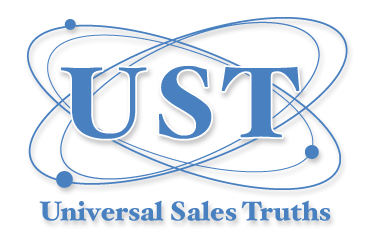If you plan on using sales as a stepping stone to other opportunities, then perhaps what I am about to describe will not be 100% applicable. However, I firmly believe the approach I will be describing will not hinder your long-term success, regardless of your ultimate career objective.
It may be hard for a salesperson beginning their career—especially one feeling the pressure to make quarterly numbers—to agree with my suggestion, but the long-term benefits will certainly outweigh the short-term potential pain.
Approach your sales territory—whether named accounts or geographic—as if you’re running your own business. When making sales calls, assume your prospect is someone you will be selling to for the next 30 years. Think for a moment about how that would change your perspective! You would probably prefer to do business with someone you enjoy being around—someone who can mix business with pleasure. Additionally, you would most likely spend time researching the company before embarking on a sales campaign, because you certainly don’t want to waste valuable selling time with a company that doesn’t offer long-term sales potential.
I’ve always said that running a sales territory is very similar to running your own business—but with a lot less risk.
So now the selling begins—or, more specifically, the listening begins. Because you can’t learn anything about your prospect’s needs if you do all the talking. Take the necessary time to learn, in detail, the challenges your customers are facing. Then, provide tailored solutions that add value in terms of saving money or increasing revenue. By approaching your territory in this fashion, you will build trust and respect with your customers that will last for many years.
It is especially important to remain in contact with your clients always, not only when a deal is on the table. One of my long-term customers at T. Rowe Price once told me, “There is nothing worse than a transactional salesman.” What he meant was, the only time some salespeople show up is when there is a deal on the table.
After years of approaching your sales territory and clients in this fashion, you will find that the long-term relationships you’ve built with accounts, clients, and contacts have paid huge dividends. In addition, it is much more enjoyable to work with established clients who trust and respect you.
It is highly unlikely that an individual with whom you’ve established a relationship will stay in the same role—or even with the same company—for the next 20 to 30 years. Likewise, as a professional sales executive, you will most likely change companies as other opportunities present themselves. However, the relationships you’ve developed will follow you!
Allow me to share specific examples from my career to illustrate what I mean.
In the early 1980s, while working for Telex Computer Products, I established a relationship with the data center manager at Baltimore Life Insurance. I sold Gene IBM-compatible displays and printers. We became good friends, played lots of golf together, and did a lot of business. When I left Telex and entered the computer leasing business, I leased Baltimore Life an IBM mainframe. After several years in leasing, I joined Memorex-Telex—initially as a regional leasing manager and ultimately as a senior account executive. In this role, I put together a deal with Gene to replace IBM tape drives with Memorex-Telex alternatives. Years later, when I joined EMC, I structured a deal with Baltimore Life to replace IBM data storage with EMC storage.
Another example is with Steve at T. Rowe Price. Early in my career, I sold 3270 terminals to T. Rowe. Later, with Memorex-Telex, I sold them an automated tape library. Finally, with EMC, I sold millions of dollars in data storage before retiring. The World Bank and CareFirst Blue Cross Blue Shield are other examples where I did significant business for over 25 years.
As mentioned earlier, solid relationships built with individuals at one company will benefit you when they move to other companies. For example, I replaced IBM data storage with EMC storage at CareFirst Blue Cross in the late 1990s. A year later, I initiated a sales campaign at GEICO Insurance, which at the time was traditionally an all-IBM account. Fortunately for me, Mike—the former Director of IT at CareFirst—accepted the role of CIO at GEICO. There’s no question Mike accelerated my success, which resulted in replacing all IBM data storage with EMC.
I could share additional examples with numerous other accounts, but I’m sure you get the point.
So, coming full circle regarding the message of this article: building strong, trusting relationships with your accounts will pay dividends for many years. This should give you a different perspective when calling on your customers and prospects. And certainly—don’t burn any bridges! You never know when you will run into a business contact in the future. They may end up being a key decision-maker in one of your high-potential accounts.
A word to the wise is, hopefully, sufficient.
UNIVERSAL SALES TRUTH #4
Work your land
Proverbs 28:19-20
Work your garden-you’ll end up with plenty of food;
Play and party-you’ll end up with an empty plate
Committed and persistent work pays off:
Get-rich quick schemes are rip-offs

